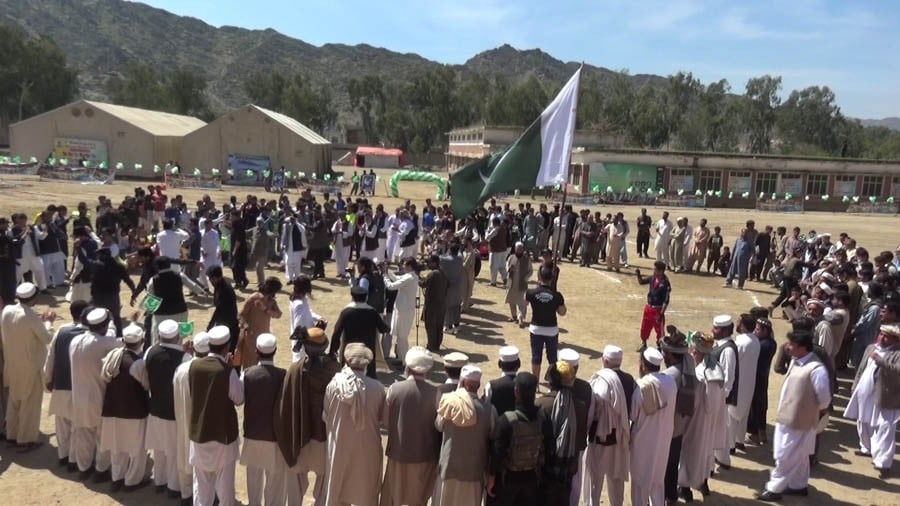
To bring tribal areas into national fold, good intentions do not suffice until they are followed by concrete steps informed by thorough understanding of the issue at hand

Segments of politically aware sections of Pakistanis were in festive mood after the passage of a National Assembly bill that seeks to extend the jurisdiction of Peshawar High Court (PHC) and Supreme Court of Pakistan (SCP) to Federally Administered Tribal Areas (Fata). A step in the right direction though, more needs to be done to mainstream tribal areas on the legal front. This article recounts two recent pieces of legislation on Fata and gives reasons as to what is lacking in the most recent and third piece of legislation with regards to the tribal region and suggests changes as to how the broad contours of legal mainstreaming of the tribal agencies should look like.
In recent times, this was not the first time that an attempt was made to bring Fata into national fold. According to the National Assembly website, two government bills, The Constitution (Thirtieth Amendment) Act, 2017 and The Tribal Areas Rewaj Act, 2017, were introduced in the National Assembly on May 15, 2017. As per the website of the lower house, these bills do not find any mention in the ‘bills passed by the National Assembly’, however. In other words, these bills were not passed by the house.
The proposed Thirtieth Amendment Bill, in its section (2) (a), envisaged to increase the number of members of the Khyber Pakhtunkhwa Assembly from 124 to 147 by amending article 106 clause (1) of the constitution. The ‘Statement of objects and reasons’ of the bill justified the increase in the number of seats because doing so was necessary for "the integration or the mainstreaming of Fata." Nevertheless, The Constitution (Thirtieth Amendment) Act, 2017 could not become the act of the parliament ostensibly because of the opposition of Jamiat UIema-e-Islam (F) and Pashtunkhwa Milli Awami Party (PkMAP) to the proposed merger of tribal areas with Khyber Pakhtunkhwa.
Similarly, The Tribal Areas Rewaj Act, 2017, met the same fate and rightly so. It might be debated as to why the Rewaj Act was not passed in the National Assembly, one reason could have been the JUI-F and PkMAP’s opposition because under section 14 (1) and (2) of the bill the jurisdiction of Supreme Court and Peshawar High Court were extended to Fata respectively. The proposed act was, ‘in a number of ways, a reincarnation of the Frontier Crimes Regulation (FCR)’ as I had argued in these pages.
On January 12, unlike on the previous two occasions, the National Assembly passed a bill titled The Supreme Court and High Court (Extension of Jurisdiction to Federally Administered Tribal Areas) Act, 2018. It envisages extending the jurisdiction of Supreme Court of Pakistan and Peshawar High Court to the tribal areas, a positive development indeed. Nevertheless, the claim that the proposed bill "abolish[ed] the Frontier Crimes Regulation" is totally unfounded. The bill has dealt with only a portion of the judicial component of the FCR by incorporating the higher and superior judiciary into Fata’s judicial hierarchy.
Under section 48 of the FCR, an aggrieved party can file an appeal with the Appellate Authority -- Commissioner or Additional Commissioner -- as the case may be, against the decision passed by the Political Agent (PA) or District Coordination Officer (DCO). Under section 55A, in order to revise the decision or verdict given by the Appellate Authority, the aggrieved party may move Fata Tribunal to have their grievance addressed. The tribunal consists of a Chairman, a BPS 21 civil servant officer who has experience in tribal administration, two members, one qualified to be appointed as a judge at a High Court and the other to be a civil servant having served in BPS 20 with experience in tribal administration. The proposed legislation does not state to abolish FCR. Rather it merely extends the jurisdiction of PHC and SCP to Fata.
Perhaps this suggests that in the hierarchy of judicial venues, ranging from DCO/PA’s office to Appellate Authority of Commissioner to Fata Tribunal, PHC and SCP would be added to the list to have grievances of the aggrieved party redressed beyond the confines of a typical bureaucratic setup.
This falls short of a rigorous reform which demands major overhaul of the judicial system of Fata. This entails abolishing FCR, replacing it with Pakistan Penal Code, establishing formal judiciary -- from magistrate court to district and session court to high court to Supreme Court -- in the tribal region and transferring the judicial powers of bureaucracy to the judiciary while leaving no legal role for the jirga system either. Therefore, doing so necessitates a more comprehensive piece of legislation than The Supreme Court and High Court (Extension of Jurisdiction to Federally Administered Tribal Areas) Act, 2018. The legislative piece does not only leave much to be desired, the current bill, even if it is converted into act, will be challenging.
As section 1 clause (2) of the proposed act suggests, the act would not come into effect right after its passage from the Parliament. Rather it might be enforced in gradual manner. "It [Act] shall come into force on such date or dates in such Federally Administered Tribal Areas or part thereof, as the Federal Government may, by notification in the official Gazette, determine from time to time," states section 1 clause (2) of the bill.
No doubt, mainstreaming Fata, long overdue, is an uphill task. It is noble too. Good intentions do not suffice until they are followed by concrete steps informed by thorough understanding of the issue at hand!